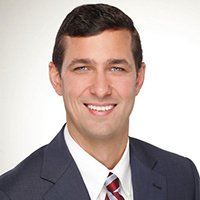Townville DUI-DWI Lawyer, South Carolina
D. Graham Buckner
✓ VERIFIEDCriminal, DUI-DWI, Workers' Compensation, Social Security
Attorney Graham Buckner’s practice is primarily focused on helping injured workers as well as criminal defense. If you have been injured at work, Gr... (more)
FREE CONSULTATION
CONTACTMatthew Bradley
DUI-DWI, Slip & Fall Accident, Medical Malpractice, Car Accident
Status: In Good Standing
FREE CONSULTATION
CONTACT

